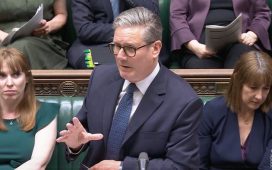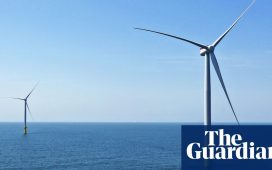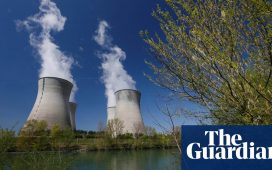The UK government stepped up efforts to hit its ambitious targets for a new generation of nuclear power stations by launching an international competition to find the leading designs for small modular reactors with the aim of co-funding the development of the technology.
But there was no extra funding for nuclear in the Budget, with officials promising details on financing would be announced at the end of the month by energy secretary Grant Shapps.
Chancellor Jeremy Hunt also confirmed plans to set up Great British Nuclear, a new body to oversee the revival of atomic energy and smooth the development of a new pipeline of power stations.
The new body will run the competition for SMRs, with the aim of completing the contest by the end of this year. The government committed to co-fund the winning bids if “demonstrated to be viable”.
The government hopes SMRs can help it reach its ambitious target of 24GW of new nuclear capacity by 2050. The target is equivalent to 25 per cent of Britain’s electricity, compared with 15 per cent at present, and is designed to bolster domestic energy security in the wake of Russia’s invasion of Ukraine.
Ministers are anxious to accelerate plans to replace the UK’s fleet of ageing atomic plants, which has dwindled in recent years as older plants were shut down. Four out of five of the operating plants are due to be retired by 2028.
The programme to replace them has been dogged by delays. The only new large nuclear plant under construction, at Hinkley Point in Somerset, is years behind schedule and over budget, a problem that has affected all other large nuclear projects across Europe.
“Increasing nuclear capacity is vital,” Hunt said as he also confirmed the launch of a consultation on reclassifying nuclear power as environmentally “sustainable”, a designation that determines which types of power are eligible for climate-related incentives. The move is designed to help drum up more private investment in the nuclear sector.
Dozens of companies are working on smaller reactor designs that they promise can deliver nuclear power quicker by drawing on modular manufacturing techniques that reduce the construction risks encountered with larger reactors.
The competition for SMRs is expected to draw interest from industrial groups, such as Rolls-Royce, and start-ups such as Newcleo, both of which have talked about their aspirations to build small reactors in the UK.
The Rolls-Royce-led consortium has already secured £210mn of government grant funding for its project and its reactor design is being assessed by the safety regulator, the Office for Nuclear Regulation.
Hunt also announced an aspiration to provide up to £20bn to be invested in carbon, capture and storage technologies during the next two decades. The initiative could help the UK store between 20mn to 30mn tonnes of CO₂ annually by 2030, he said. But officials confirmed there would be no fresh cash before the next general election, due to be held by January 2025.
Campaigners expressed disappointment with the lack of green measures in the Budget at a time when the US is supercharging its energy transition with its $369bn Inflation Reduction Act, and as the EU is preparing its Net Zero Industry Act.
“What is announced today is not enough to keep the UK in the global race to net zero emissions — it puts us at risk of being outcompeted by the US and by Europe,” said Ed Matthew, campaign director at think-tank E3G.
Climate Capital

Where climate change meets business, markets and politics. Explore the FT’s coverage here.
Are you curious about the FT’s environmental sustainability commitments? Find out more about our science-based targets here











